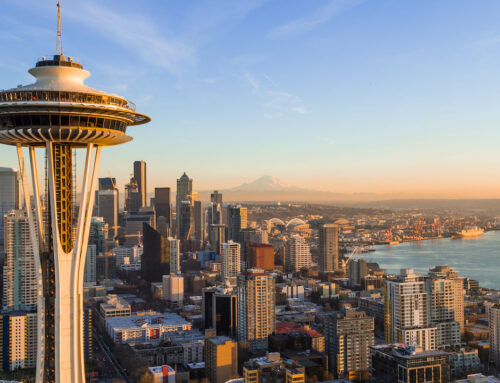Amazon to begin deploying rival satellites to Starlink this month
April 2, 2025

Amazon will begin deploying its satellite broadband constellation, Project Kuiper, this month in what is expected to become the first serious challenge to the dominance of Elon Musk’s Starlink.
As soon as April 9, 27 Kuiper satellites will be launched into space on a United Launch Alliance Atlas V rocket from Cape Canaveral Space Force Station in Florida, the company said on Wednesday. The launch date could still be delayed though if conditions are not ideal.
The launch of the Kuiper network will pit Jeff Bezos against rival billionaire Musk in the rapidly evolving market for internet services from low Earth orbit, an increasingly strategic region of space up to 2000km above the globe.
The arrival of a competitor to Starlink will be welcomed by many governments, which have become increasingly uneasy at the dominance of Musk’s satellite service.
Since launching its first satellite in 2019 Starlink has flown more than 7,000 spacecraft to altitudes of about 550km, and the network now serves 4.5mn customers in more than 100 countries.
As well as controlling more than 60 per cent of all satellites in orbit Starlink’s connectivity has become critical for Ukraine in its defence against Russia. However, international concerns about Starlink intensified after the US threatened to withdraw the service during talks with Ukraine. Musk then denied this would happen.
Meanwhile, Amazon aims to send some 3,200 satellites into orbit at slightly higher altitudes of about 600km. Though targeting the same retail, business and government customers, the company has been relatively secretive about the capabilities and timelines of its service.
“We’ve designed some of the most advanced communications satellites ever built, and every launch is an opportunity to add more capacity and coverage to our network,” said Rajeev Badyal, vice-president of Project Kuiper, in a statement.
However, experts say it will take time for Kuiper to provide a service with global reach. The group had been slower than expected in launching its first operational satellites, after flying two prototypes in October 2023.
“If it takes 12-15 months to manufacture 27 Kuiper satellites, how long will it take to build and then launch 3,236?” asked Armand Musey, president of satellite consultancy Summit Ridge Group. “Things will speed up with experience, but they need to go from building two satellites a month to two a day!”
Amazon is also under pressure to meet a deadline set by the Federal Communications Commission to have 50 per cent of its constellation flying by the middle of next year. “This will be a challenge, they will likely need an extension,” said Musey.
The company has said it aims to have an operational service this year.
In 2022 Amazon made the largest launch booking in the history of the space industry, signing deals with ULA, Arianespace, Blue Origin and SpaceX to reserve up to 83 rockets to carry its satellites into orbit over the next few years.
Search
RECENT PRESS RELEASES
Related Post
![MCA To Release ‘The Gray House [Original Soundtrack From The Amazon Series]’](https://stockwatchindex.com/wp-content/uploads/2026/01/Untitled-5-7-1030x579-7hafYl-500x383.png)



